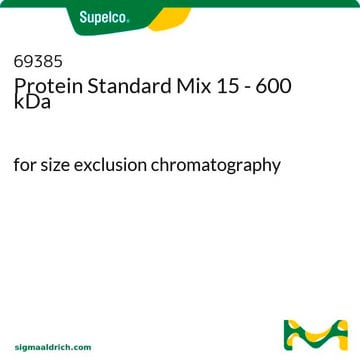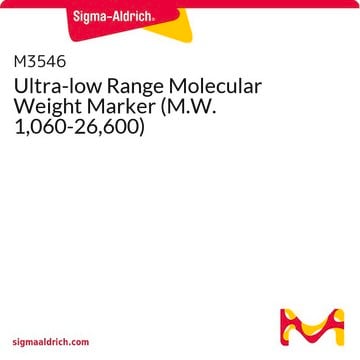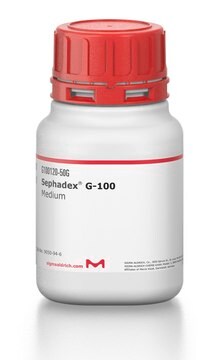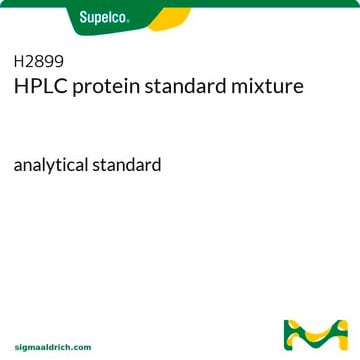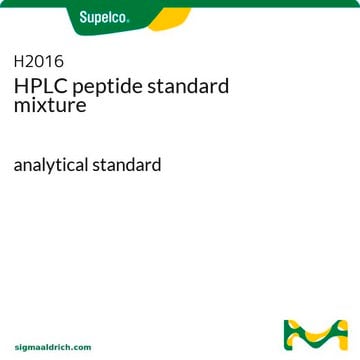MAB5372
Anti-Astrocytomas Antibody, a marker for Low Grade Astrocytoma, clone J1-31
ascites fluid, clone J1-31, Chemicon®
About This Item
Productos recomendados
origen biológico
mouse
Nivel de calidad
forma del anticuerpo
ascites fluid
tipo de anticuerpo
primary antibodies
clon
J1-31, monoclonal
reactividad de especies
guinea pig, rat, human, mouse
fabricante / nombre comercial
Chemicon®
técnicas
immunocytochemistry: suitable
immunohistochemistry: suitable (paraffin)
western blot: suitable
isotipo
IgM
Condiciones de envío
dry ice
modificación del objetivo postraduccional
unmodified
Especificidad
Monoclonal antibody J1-31 was raised against crude homogenate of brain tissue from a multiple sclerosis (MS) patient (autopsy sample; Malhotra et al.: Microbios Letters 26:151-157, 1984). In human brain, MAb J1-31 recognizes an intracellular protein antigen (J1-31 antigen), which bands at approximately 30,000 daltons under reducing conditions for sodium dodecyl sulfate gel electrophoresis (Singh et al.: Bioscience Reports 6:73-79, 1986). By immunofluorescence microscopy, MAb J1-31 stains those cells that are also stained by antiserum to glial fibrillary acidic protein (GFAP), namely astrocytes, retinal Muller cells, and tanycytes in the ependyma (Predy et al.: Bioscience Reports 7:491-502, 1987). In addition, MAb J1-31 stains ciliated ependymal cells that do not express GFAP {Malhotra, SK (1989) J Neurosci Res. 22(1):36-49}.
Inmunógeno
Aplicación
Neuroscience
Neuronal & Glial Markers
Immunohistochemistry The antibody works on paraffin embedded tissue sections.
Immunocytochemistry
Optimal working dilutions must be determined by the end user.
Ligadura / enlace
Forma física
Almacenamiento y estabilidad
Información legal
Cláusula de descargo de responsabilidad
¿No encuentra el producto adecuado?
Pruebe nuestro Herramienta de selección de productos.
Código de clase de almacenamiento
10 - Combustible liquids
Clase de riesgo para el agua (WGK)
WGK 1
Punto de inflamabilidad (°F)
Not applicable
Punto de inflamabilidad (°C)
Not applicable
Certificados de análisis (COA)
Busque Certificados de análisis (COA) introduciendo el número de lote del producto. Los números de lote se encuentran en la etiqueta del producto después de las palabras «Lot» o «Batch»
¿Ya tiene este producto?
Encuentre la documentación para los productos que ha comprado recientemente en la Biblioteca de documentos.
Nuestro equipo de científicos tiene experiencia en todas las áreas de investigación: Ciencias de la vida, Ciencia de los materiales, Síntesis química, Cromatografía, Analítica y muchas otras.
Póngase en contacto con el Servicio técnico